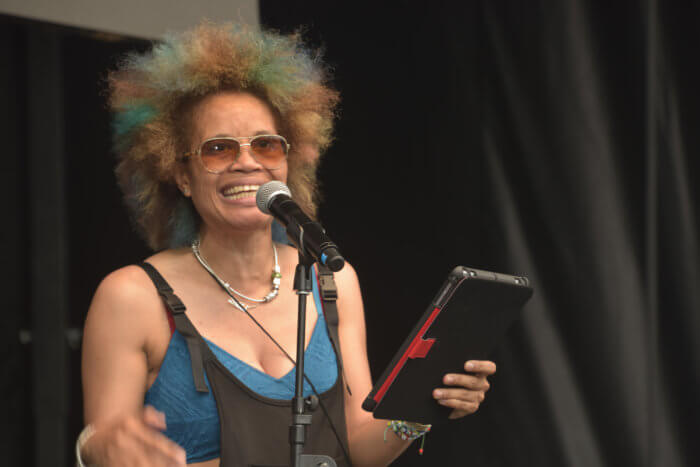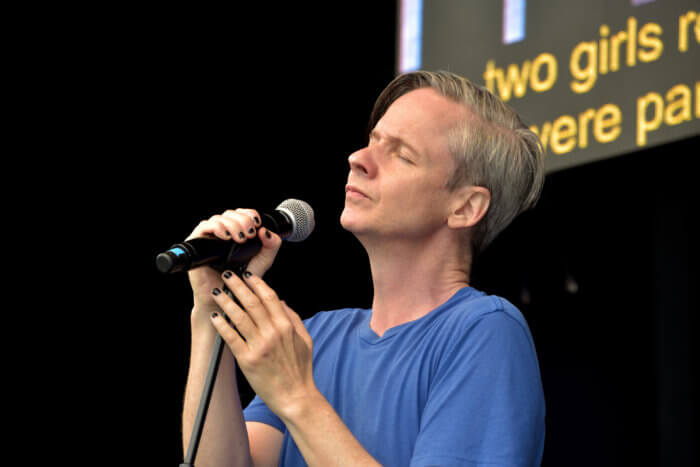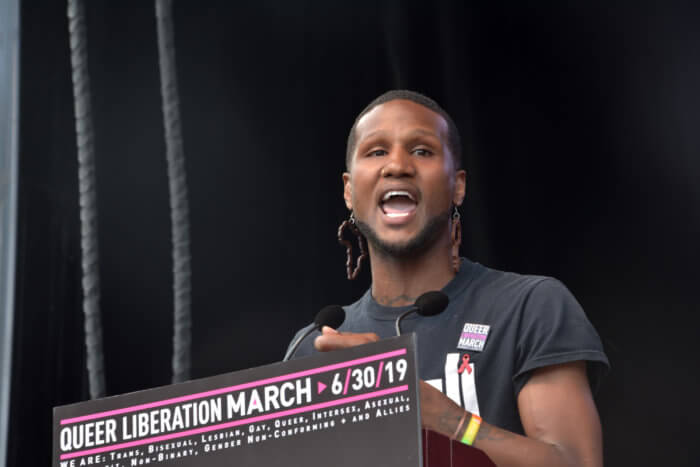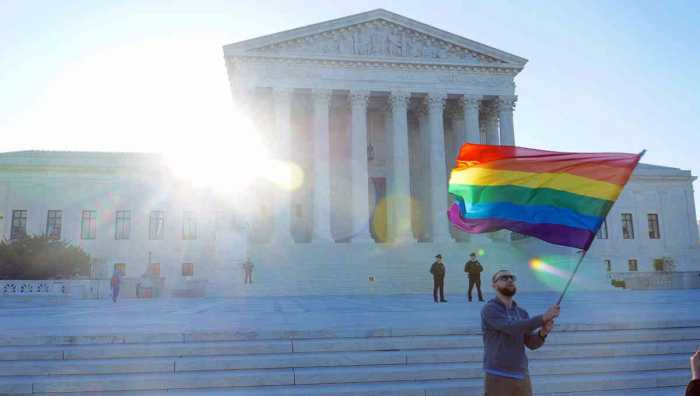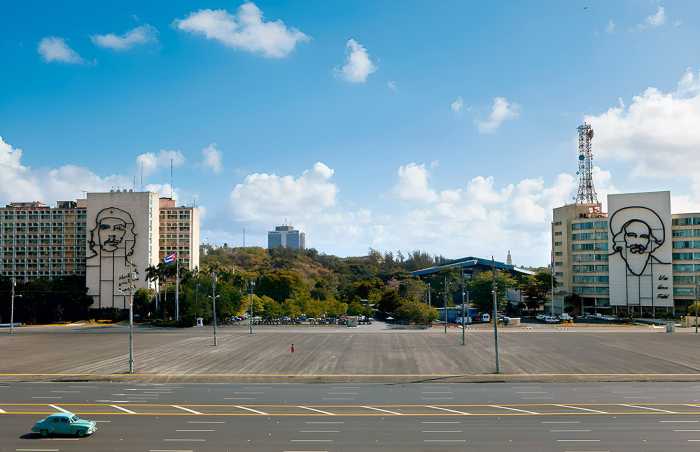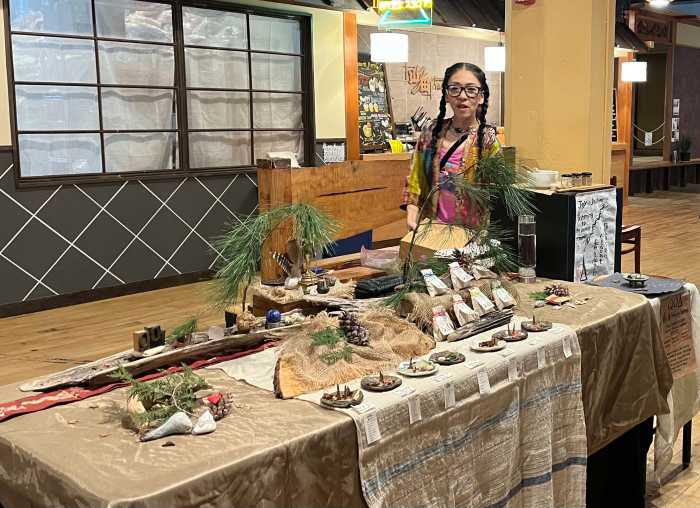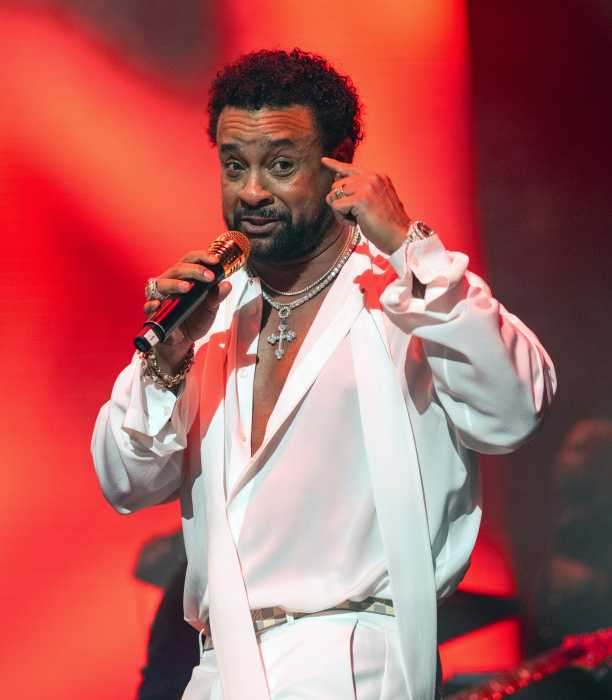Thousands turned out for the Queer Liberation March and a rally that was held on the Great Lawn in Central Park in events that were explicitly linked to the LGBTQ community’s radical history and to its current far left politics.
“From early on, solidarity,” said Marsha Goldberg who was heading up Sixth Avenue to Central Park on June 30 with the Workers World Party contingent. “Right from the beginning.”
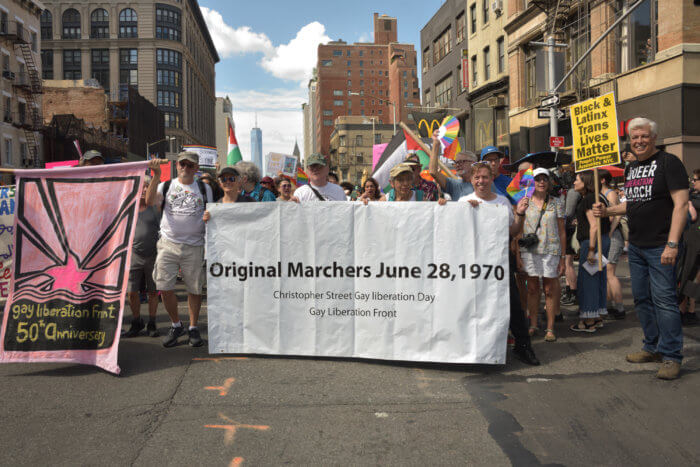
The WWP has marched in every march since 1971 and it was likely alone among Socialist or Marxist groups that embraced the new politics of what is now called the LGBTQ community. The Gay Liberation Front (GLF), the first new group to form following the 1969 riots at the Stonewall Inn in the West Village, had members in groups allied with the WWP and other radical groups in the ‘60s. The annual marches in New York City and elsewhere around the US and the world commemorate the riots, which are seen as marking the start of the modern LGBTQ rights movement.
Goldberg said that when the WWP initially created what was then called its “gay caucus,” it had straight members who were receptive, but still confused.
“They said, ‘We don’t understand, but we know oppression when we see it,’” Goldberg said. “This movement is a liberation movement.”
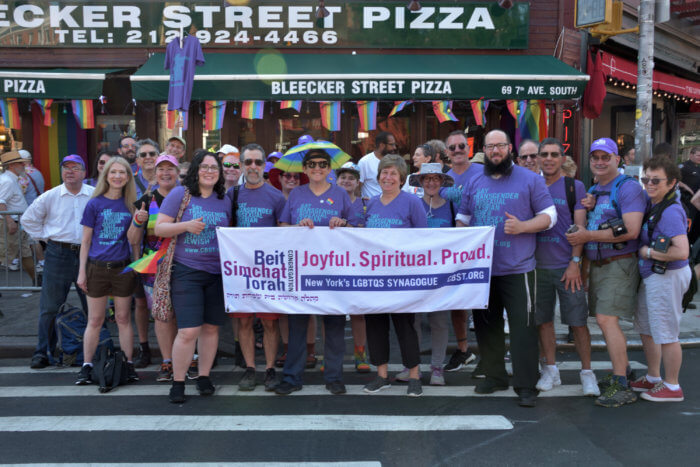
The 2019 march closely mirrored the route taken by the 1970 march, the first commemoration of the riots. Both marches went up Sixth Avenue to Central Park, but their starting points differed by a block. The 1970 march ended on the Sheep Meadow with a “gay-in.” This year’s march also captured the radical spirit of the early marches.
Groups included people who marched in the 1970 march, including some former GLF members and members of the Gay Activists Alliance (GAA), which also formed in late 1969, as well as Rise and Resist, Revolting Lesbians, Gays Against Guns, ACT UP, the HIV activist group, and a contingent from Congregation Beit Simchat Torah, the LGBTQ synagogue.
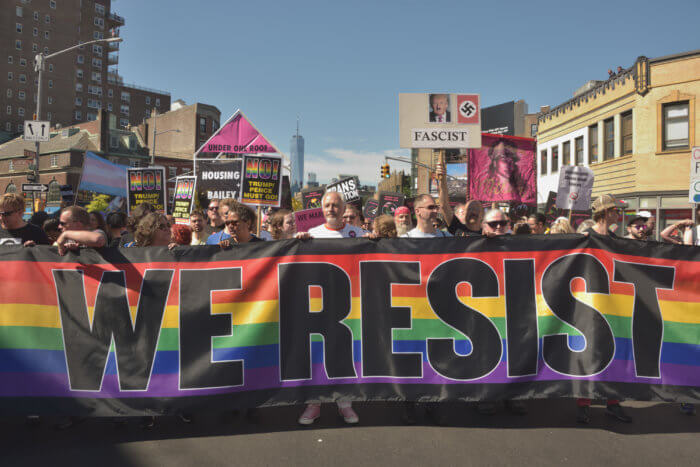
There were also signs calling for the federal Immigration and Customs Enforcement agency to be abolished, “Free Abortion on Demand,” supporting the boycott, divestment, and sanctions movement that targets Israel, “We March Against Transphobia,” “No Trump/ Pence Must Go,” and other causes. As the march passed a Chick-fil-A outlet on Sixth Avenue, marchers chanted “Shame, shame, shame.”
This year’s march and rally were produced by the Reclaim Pride Coalition (RPC), which has many members with deep roots in the LGBTQ, anti-war, and other movements. The desire for a separate march was first expressed in 2017 when activists pressed Heritage of Pride, also known as NYC Pride, for a resistance contingent in that year’s Pride March that was meant as a response to the election of Donald Trump. The decision to pursue a separate march was made last year when activists again pressed NYC Pride for a resistance contingent.
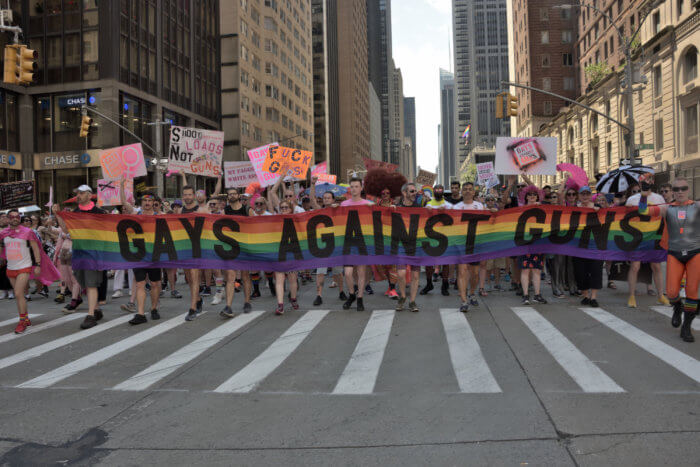
Activists also objected to the dominant presence of corporate sponsors in New York City’s annual Pride March. While most of the contingents in the parade are community groups and non-profits, corporate sponsors are a dominant presence with large floats and contingents. Activists also wanted the policing of the parade reduced and that members of the Gay Officers Action League be required to march without uniforms.
With this year marking the 50th anniversary of the riots, the RPC members were unwilling to appear in a parade that many understood would be overrun with corporate floats and would resemble a party, not a political event.
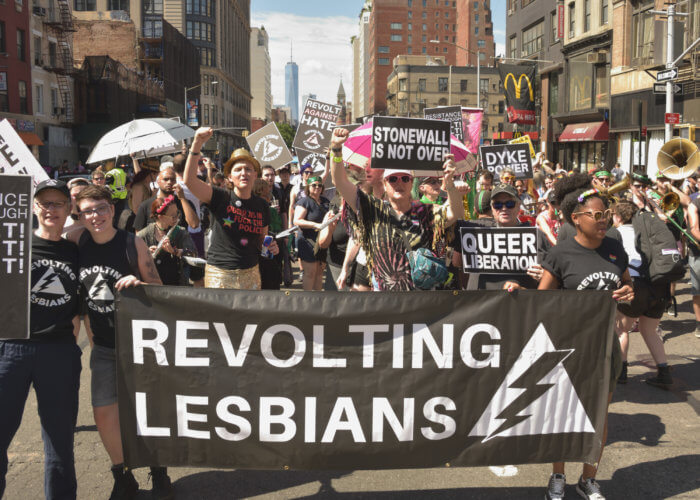
“I would say that the message overall is ‘It’s not over,’” Ann Northrop, an RPC member, said during a June 25 call with reporters. “We are in the midst of a continuing fight for our freedom and justice for all… We are doing this march to inspire people to get involved. There is a lot going on that still needs to be addressed.”
The RPC march and rally were produced with a $200,000 budget while the NYC Pride budget was $12 million this year, which is about triple its usual budget. NYC Pride had the license for WorldPride and was required by that license, which is owned by InterPride, to produce some additional events, such as opening and closing ceremonies.
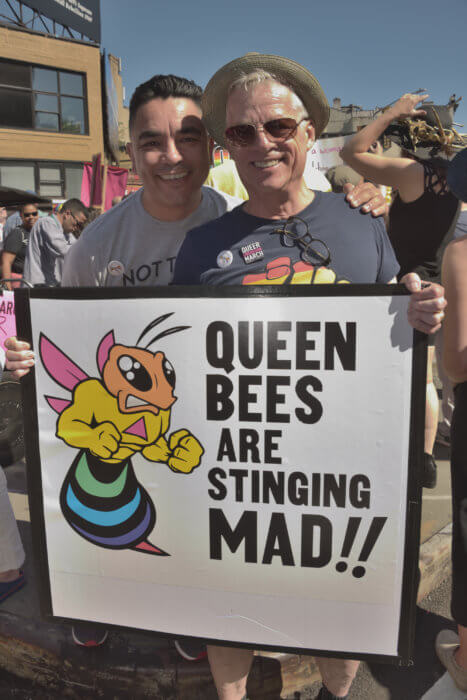
Prior to the RPC event, activists gave a range of estimates for the expected crowd in the “tens of thousands” and one speaker on the rally stage put the crowd size at 45,000. While that is likely inflated, the organizing did produce a substantial crowd and the march and rally were unquestionably successful.
The rally featured a mix of speakers whose messages ranged from uplifting to unrelentingly negative.
Larry Kramer, the longtime HIV activist, used a rhetorical device that he first employed in a speech in the Great Hall at Cooper Union in 2004 in which he expresses his love for the LGBTQ community and then is critical.
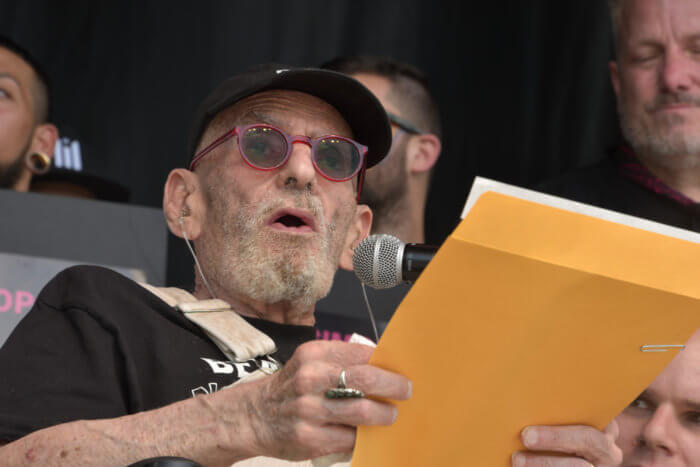
“I love being gay, I love my people, I think in many ways we’re better than other people,” he said while seated in a wheelchair with ACT UP members standing behind him. “Most gay people I see appear to have too much time on their hands. If you have time to get hooked on drugs and do your endless rounds of sex-seeking cyber-surfing until dawn, you do have too much time on your hands… If we do not fight back against our enemies, we will continue to be murdered. But we have a population that is inept at organizing ourselves… We are not very good at fighting back.”
During Kramer’s speech, a young woman sitting near Gay City News kept saying, “Get him off the stage, enough. There are 45,000 people here. What is he saying?”
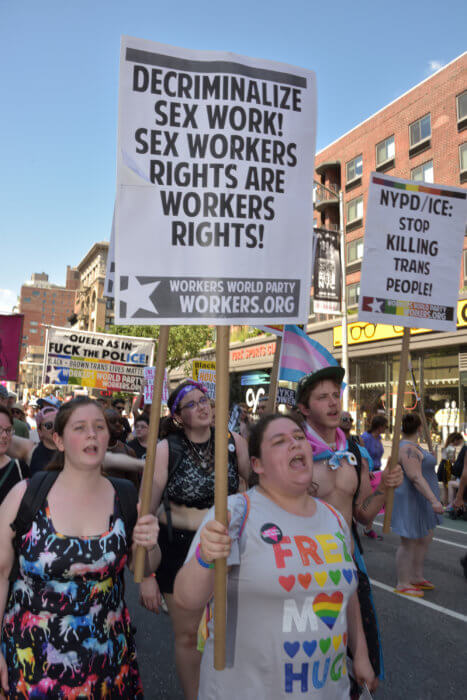
Other speakers were more upbeat and made comments that hewed closer to the day’s theme.
“We reclaim our movement from the police, we reclaim our movement from the corporations, we reclaim our movement from the cis white men who sit under privilege,” said Jason Walker, the HIV/ AIDS campaign coordinator at VOCAL-NY, an HIV activist and services group.
Cindy Wiesner, the national coordinator of the Grassroots Global Justice Alliance, had a similar message.
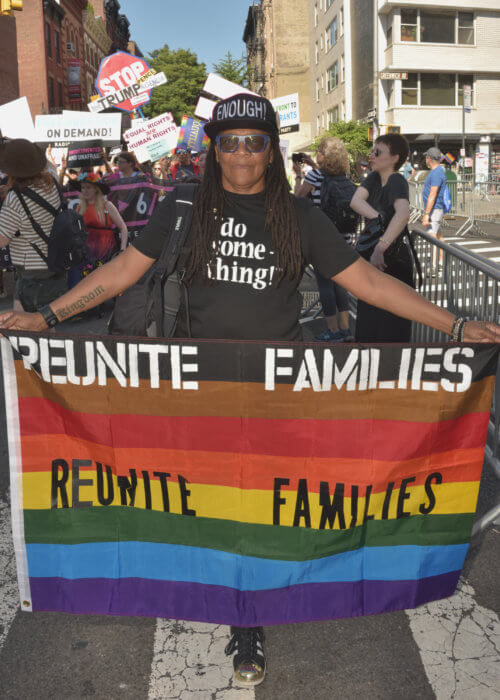
“Today we are reclaiming our revolutionary, historical figures known and unknown,” she said and listed Sylvia Rivera, Marsha P. Johnson, Audre Lorde, and other noted figures. “Those who rioted to make space for us to exist, to be, they did not protest, they did not organize so we could assimilate.”
